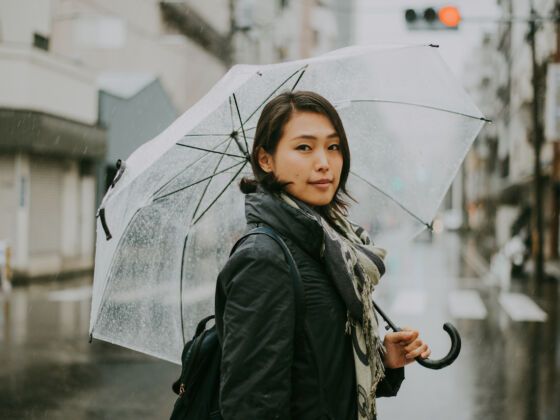SO I JUST GOT BACK from a walk to my neighborhood convenience store or konbini.
Our neighborhood is going through a lot of construction right now, so the fronts of apartments are littered with ladders and tools, ashtrays (they bring their own), and workers on break. I’ve seen setups like this before around here, and never think much of it — just people doing their job.
